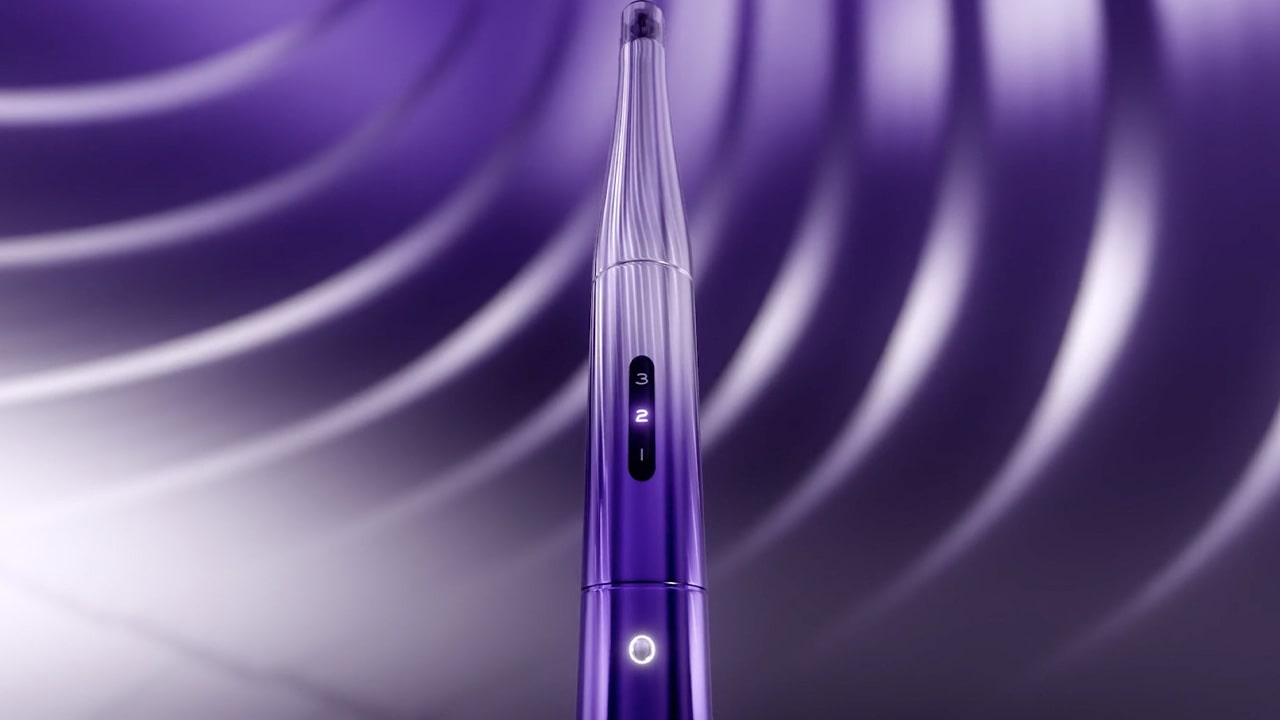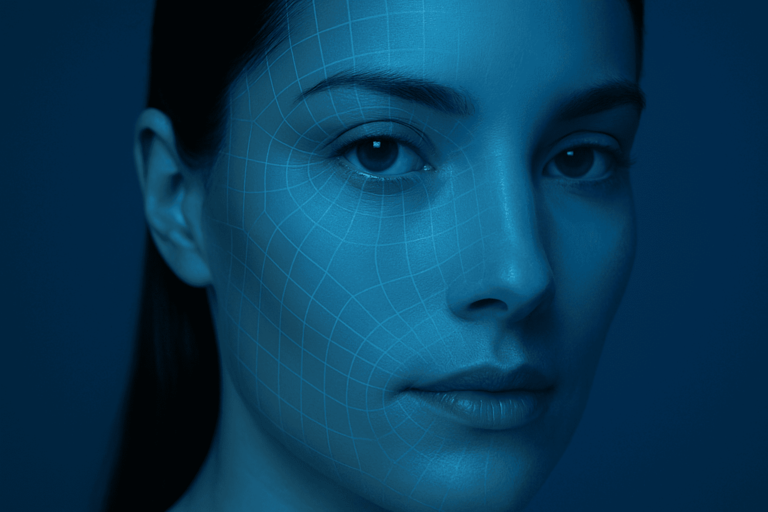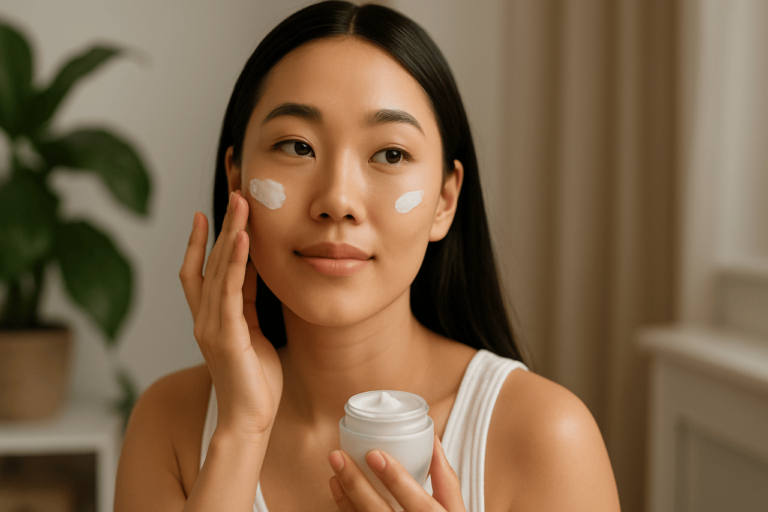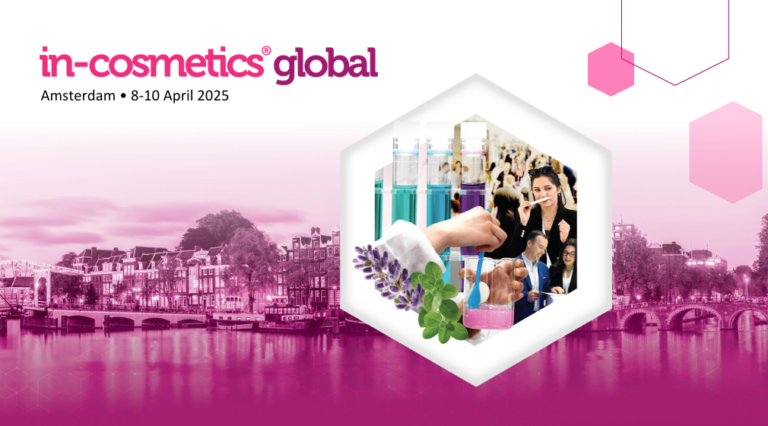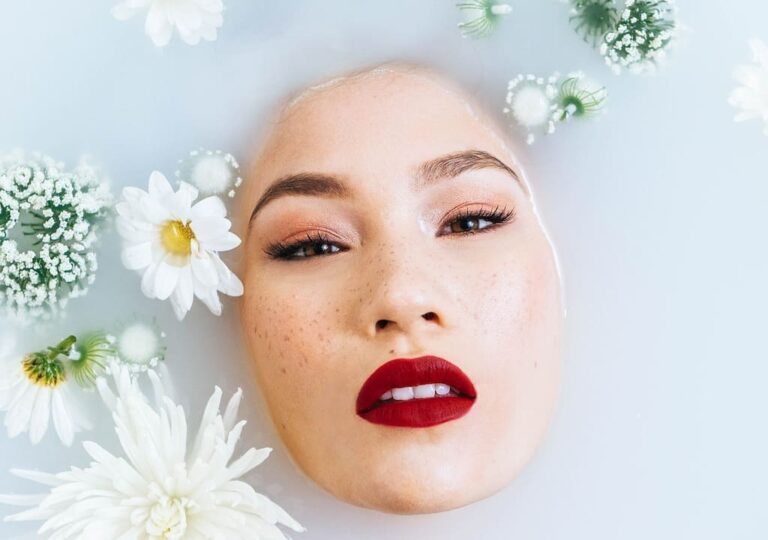Lancôme NANO-RESURFACER | 400 BOOSTER – Image courtesy of Lancôme.
In 2024, the focus is on cutting-edge cosmetic tech that are not only reshaping consumer experiences but also providing professionals with advanced tools for product development and testing. From at-home skincare devices to AI-driven personalization, these beauty tech trends are setting new standards in the beauty world, offering practical applications that elevate both brand credibility and consumer trust.
Personal cosmetic tech devices
The intersection of personal care and technology is rapidly advancing, with new devices offering consumers professional-grade skincare treatments from the comfort of their homes. Devices such as myBlend MyLEDMask and Lancôme’s Nano Resurfacer, equipped with LED light therapy and nano-exfoliation technology, meet a growing demand from consumers who are increasingly demanding in terms of the effectiveness of skincare solutions, looking for at-home dermatology.
By allowing consumers to achieve professional results independently, brands are answering the need for convenience while also reinforcing their position as science-based leaders in beauty tech trends.
3D Evaluation & simulation
The adoption of 3D technology in cosmetics is accelerating, particularly in product efficacy testing and communication. Brands like Lancôme are now employing Cydolia’s advanced 3D evaluation and simulation technologies to offer more precise and rapid assessments of product efficacy. This enables brands to substantiate claims about skin firmness and other benefits with greater accuracy, setting a new standard in the industry.
This technological leap is not just about speed; it’s also about transparency and trust. By linking clinical data to visual communications, ranging from effects visualizations to bias-free before-and-after comparisons, brands can provide consumers with compelling, scientifically-backed evidence of their products’ effectiveness. This beauty tech trend is particularly evident in Lancôme’s launch of Génifique Ultimate, where Cydolia’s 3D technology played a crucial role in validating and showcasing product results.
In-store augmented reality
Augmented Reality is increasingly being integrated into in-store experiences, adding an interactive layer to the shopping journey. Shiseido’s Skin Visualiser exemplifies this cosmetic tech trend, using AI-driven skin assessments to enhance customer engagement. AR technology allows consumers to visualize the effects of skincare products in real-time, offering both convenience and inclusivity, particularly in tasks such as finding the right foundation color match.
However, while AR brings an exciting “wow” factor to the retail environment, it’s not without its limitations. The accuracy of AR-driven try-ons often falls short of real-world results, especially when the technology lacks the support of clinical data. For brands looking to build long-term trust, integrating solutions like Cydolia, which ensures that virtual outcomes align with actual product performance, is critical in navigating this beauty tech trend.
Browser-based Metaverse
The metaverse is opening up new possibilities for beauty brands, offering immersive digital environments where consumers can engage with products in novel ways. Sephora’s Sephora Universe is a prime example, reimagining the traditional retail experience in a virtual space that is easily accessible through a web browser.
Brands investing in this beauty tech trend are poised to capture the attention of tech-savvy consumers. The recent launch of Apple Vision Pro, a next-generation VR headset, further amplifies this trend, promising a more seamless and immersive experience that could revolutionize how consumers interact with beauty products online.
AI-powered personalization
Artificial Intelligence is becoming a cornerstone of beauty tech innovation, particularly in the realm of personalized product recommendations. Companies like Unilever are harnessing AI to analyze individual skin types and preferences, delivering customized beauty solutions that were previously unimaginable.
This move towards ultra-personalization is reshaping consumer expectations, as AI enables brands to offer tailored experiences that resonate on a deeper level. By meeting consumers’ specific needs with precision, AI-driven solutions are enhancing satisfaction and fostering brand loyalty, setting a new standard in cosmetic tech trends.
Cosmetic Tech FAQ
How is beauty tech transforming the cosmetics industry?
Beauty tech is revolutionizing the cosmetics industry by integrating advanced technologies such as AI-driven personalization, 3D skin analysis, and augmented reality. These innovations allow brands to offer more effective products, precise skincare evaluations, and personalized beauty experiences, ultimately elevating consumer trust and brand credibility.
What are some examples of personal cosmetic tech devices?
Personal cosmetic tech devices, like Lancôme’s Nano Resurfacer and myBlend MyLEDMask, allow consumers to perform professional-grade skincare treatments at home. These devices utilize LED light therapy and nano-exfoliation technologies to offer convenient and effective skincare solutions, exemplifying the growth of beauty tech for at-home use.
How does 3D technology enhance cosmetic efficacy testing?
3D technology enhances cosmetic efficacy testing by providing precise, unbiased evaluations of skin changes over time. Brands like Lancôme use advanced 3D simulation tools to substantiate product claims, such as improvements in skin firmness, offering consumers more reliable data about the effectiveness of cosmetic products.
What role does AI play in cosmetic tech?
AI plays a crucial role in cosmetic tech by enabling personalized product recommendations and enhancing skincare assessments. AI systems analyze individual skin types, preferences, and product data to deliver customized beauty solutions, improving customer satisfaction and advancing the beauty tech trend toward ultra-personalization.
How is augmented reality used in cosmetic retail?
In cosmetic retail, augmented reality (AR) is used to enhance the shopping experience by allowing consumers to try on products virtually. For example, Shiseido’s Skin Visualiser uses AI to assess skin and provide real-time visualizations, helping customers find the right products without the need for physical samples.
What is the impact of the metaverse on beauty tech?
The metaverse is expanding the possibilities for beauty brands by creating immersive, browser-based virtual environments where consumers can explore products. Initiatives like Sephora Universe provide interactive, digital spaces that reimagine the shopping experience, marking a significant evolution in cosmetic tech and consumer engagement.

